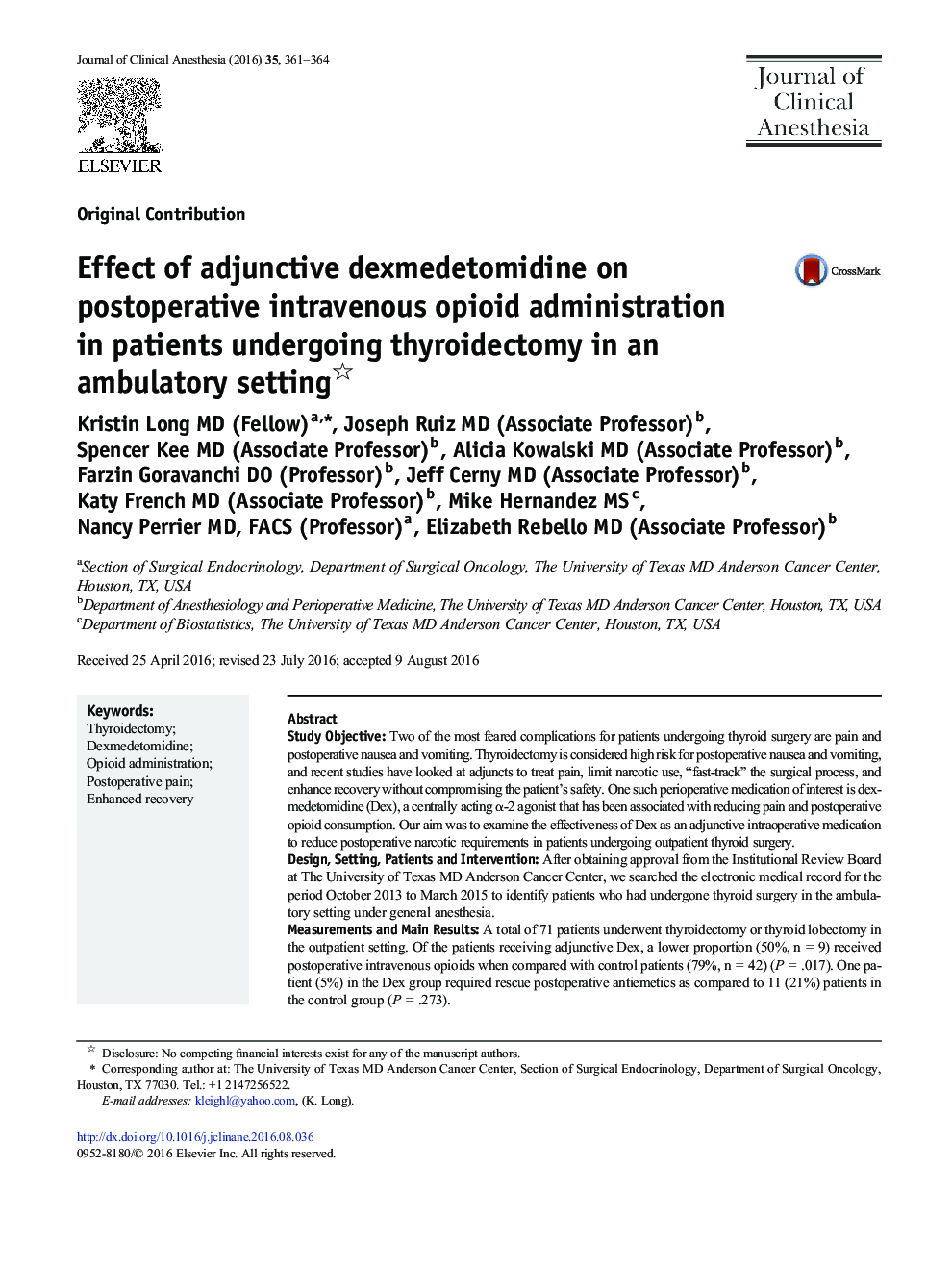| Article ID | Journal | Published Year | Pages | File Type |
|---|---|---|---|---|
| 5884318 | Journal of Clinical Anesthesia | 2016 | 4 Pages |
Study ObjectiveTwo of the most feared complications for patients undergoing thyroid surgery are pain and postoperative nausea and vomiting. Thyroidectomy is considered high risk for postoperative nausea and vomiting, and recent studies have looked at adjuncts to treat pain, limit narcotic use, “fast-track” the surgical process, and enhance recovery without compromising the patient's safety. One such perioperative medication of interest is dexmedetomidine (Dex), a centrally acting α-2 agonist that has been associated with reducing pain and postoperative opioid consumption. Our aim was to examine the effectiveness of Dex as an adjunctive intraoperative medication to reduce postoperative narcotic requirements in patients undergoing outpatient thyroid surgery.Design, Setting, Patients and InterventionAfter obtaining approval from the Institutional Review Board at The University of Texas MD Anderson Cancer Center, we searched the electronic medical record for the period October 2013 to March 2015 to identify patients who had undergone thyroid surgery in the ambulatory setting under general anesthesia.Measurements and Main ResultsA total of 71 patients underwent thyroidectomy or thyroid lobectomy in the outpatient setting. Of the patients receiving adjunctive Dex, a lower proportion (50%, n = 9) received postoperative intravenous opioids when compared with control patients (79%, n = 42) (P = .017). One patient (5%) in the Dex group required rescue postoperative antiemetics as compared to 11 (21%) patients in the control group (P = .273).ConclusionsOur data suggest that intraoperative use of Dex reduced narcotic administration in the postoperative period among study population patients undergoing thyroidectomy.
